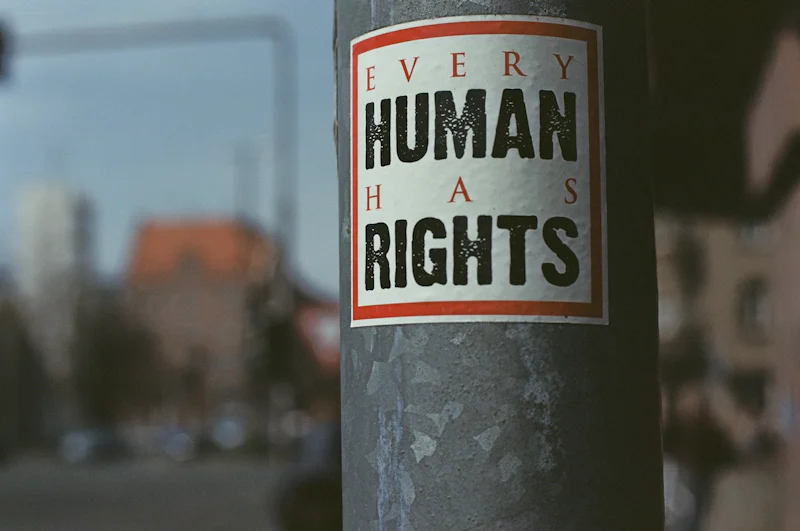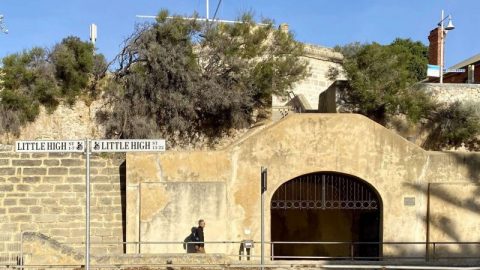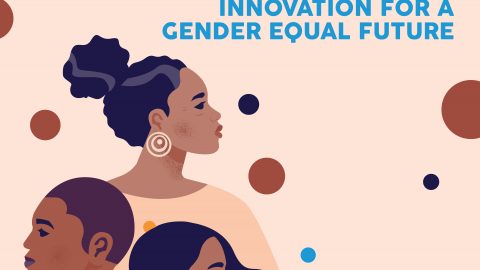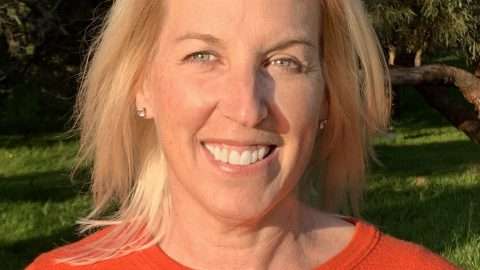I would like to begin by acknowledging the traditional custodians of the land on which we are meeting today, and pay my respects to Elders past, present and emerging, and to any First Nations People attending in person or watching today’s broadcast.
Commissioner colleagues, senior staff of the Commission, Commission EAs, colleagues from the Attorney-General’s Department, my husband Emeritus Professor John Croucher, friends and colleagues.
I speak to you today in the final weeks of my seven-year term as President of the Australian Human Rights Commission.
When I began my term in 2017, the marriage equality plebiscite was engulfing our nation, in much the same way as the recent Voice referendum did.
Although the outcomes were different, the focus on human rights which framed the respective debates serves to remind us that the application and experience of human rights are elemental to the way we function as a society.
As I conclude my term as President, the war in Gaza is inflaming tensions across our country and having terrible impacts on our Jewish, Palestinian, Muslim and Arab communities.
And, at the same time, complex issues such as domestic and family violence, child justice, immigration, housing, the environment and climate change – among others – continue to torment and frustrate many people and communities.
With a population as diverse as contemporary Australia, there will always be intersections and, indeed, friction between people who fail to take the time to understand or care about the welfare of others, or who believe their rights – or their idea of their rights – should prevail over the rights of others.
Whenever we deny the rights of others – through action or inaction – we deny ourselves one of the best and most important parts of what it means to be human: having the capacity to feel empathy and practise respect.

Credit Markus Spiske
These values form the glue which binds us together, allowing us to fathom the dreams and nightmares of others and then use that understanding to live together ‘free and equal in dignity and rights’, as famously expressed in the Universal Declaration of Human Rights
If we are to live the values of human rights – that are fundamental to the healthy functioning of our community and democracy – we must all ensure the actions we undertake and the language we use to advocate for the rights of some do not undermine the rights of others.
This is the reasoning and sentiment that should guide all of us, even in the worst of times: that human rights exist to protect everyone, everywhere, everyday.
By having empathy and compassion, and by making dignity real for everyone by respecting each other, we keep true to our shared humanity and to the best part of ourselves.
My commitment to these values has framed not only my time at the Human Rights Commission, but my 10 years prior as Commissioner and then President of the Australian Law Reform Commission
This equates to nearly 18 years in roles which seek to progress law reform and positively improve social justice for all Australians, a contribution to Australia’s public life that I have been honoured to make.
Today I want to reflect on and celebrate the role and work of the Australian Human Rights Commission.
And I particularly want to send a clarion call to action for all Australians.
The Commission is an iconic institution in our democracy.
It is one of a suite of small but mighty independent agencies which hold government to account, and which protect the rights of the public, regardless of the political tides of the day.
Our functions are conferred on the President and Commissioner group, independent of government control. We are not constrained to act in accordance with government policies or agendas.
We are here to push governments to do more, to do it better and to be answerable for their decisions – we are one of our democracy’s key accountability mechanisms.
And so, at times, we may be unpopular with either the government or the opposition of the day for how we go about our work.
Our work is enduring and must have significance beyond political cycles.
The role of the Human Rights Commission, the Law Reform Commission and other such agencies is important for present and future Australians – for our children and our ‘children’s children’ as I will return to at the end of my speech.
Our concerns are not limited to what the Government of the day wants Australia to be. We are focused on what Australia should be.
Sometimes reforms that we propose may come immediately – such as the recommendations from the Commission’s landmark Respect@Work about addressing sexual harassment and inappropriate conduct in workplaces.
Sometimes it takes upwards of a generation.
As an example, one of the Commission’s most iconic pieces of work is the Bringing Them Home report about the forced separation of First Nations children from their families. The report was released in 1997 but it was not until 2021 that the Commonwealth, under Prime Minister Morrison, implemented a key recommendation for financial compensation.
It is a good example of what I call the long arc of law reform; and of a Commission pushing government to do more and to do better.
There are many other such examples:
* the reform of hundreds of federal laws to remove same sex discrimination after a national inquiry by the Commission in 2007
* the work of successive Disability Discrimination Commissioners that means you can take prams on buses, trains and trams, and
* the Closing The Gap approach to improving the health and wellbeing of First Nations people, which was designed by the Commission, opposed by the government of the day and is now orthodox policy.
Mighty indeed.
And there are literally thousands upon thousands of stories of how our complaint handling work under discrimination laws changes people’s lives, on almost a daily basis.
It is a wondrous organisation, full of extraordinary, largely unsung, people.
However, this wonder is, for me, tempered by one of the most surprising aspects of leading the Commission: that despite our role being clearly and expressly laid out in legislation, it is often, wilfully or otherwise, misunderstood.
Commonly expressed canards about the Commission include:
* references to people being ‘hauled before the Human Rights Commission’;
* disappointment being expressed when we don’t ‘prosecute’ someone, and
* the very generalised criticism about being ‘absent’ in commenting on an issue, usually at a global or international level, and usually expressed as ‘where is the Human Rights Commission?’
These critiques – and critics – misunderstand several key parameters:
* that we are obliged to consider all complaints that are sent to us
* that no one is ‘hauled before us’ – we provide a dispute resolution process that is neutral, voluntary and low cost, and fewer than 4% of the thousands of matters conciliated each year by us ever go anywhere near a court
* that the accepting of a complaint does not automatically mean that the Commission considers it to have merit
* that we have no power to prosecute anyone and do not instigate complaints ourselves, and
* that our role is about human rights issues in Australia – we are not a public commentator at large on the state of the world.
But enough of that.
The key focus of my speech today is under the banner of Free and Equal, which is the title of a major national law reform project I have overseen during my time at the Commission.
Over five years, we have undertaken national consultations, two major conferences and multiple technical workshops; and we have released issues papers, discussion papers and two major position papers, culminating in a final report, tabled just in time for International Human Rights Day on 10 December last year.
The final report is titled Revitalising Australia’s commitment to human rights and it provides a comprehensive set of recommendations to improve the protection of human rights in Australia.
This is the clarion call to which I referred.
Today, my simple message is that the Australian government can do better to protect people’s rights in Australia.
We have lost our way at the national level over the past 15 years, and we are in need of significant action by our government to fix this.
Firstly, our discrimination laws are out of date, confusing and do not serve Australia’s needs in the 21st century.
They are framed in the negative – telling us what we can’t do rather than what we can do – and they are largely reactive, which means there are limited obligations to stop discrimination from occurring in the first place.
Secondly, we lack basic accountability to Parliament, and to the Australian people, for how we protect human rights.
Thirdly, we have a significant lack of public education about our rights – respect and dignity, and the human rights that reflect this, should be a foundational element of our civics education and core to the maintenance and progress of social cohesion.
Fourthly, we lack basic, measurable data against which to track how we are progressing.
Governments are here to serve the community and yet we lack basic tools to measure whether we are advancing or regressing on key measures of well-being, and whether the opportunity to thrive is afforded to all in our community or just some.
But most fundamentally, we lack basic protections of human rights.
We saw this in graphic detail in Royal Commissions into violence and abuse against people with disability; the treatment of our veterans; people in aged care; and in the scandalous Robodebt scheme where the rights of the most vulnerable in Australia were flagrantly disregarded.
As we leave the COVID-19 pandemic in the rear-view mirror, as we contemplate the challenges of climate change into the future, and as we consider the social justice implications of cost-of-living pressures, it is time for better protection of human rights to be a central consideration by our Parliament and our Government.
If we do value fairness, if we do value dignity, if we do care about equality of opportunity in this country, then we need this foundation of human rights to be embedded and strengthened for all.
The centrepiece of our national human rights reform agenda is a national Human Rights Act.
This would operate in the following ways.
First, Parliament would consider more directly how their lawmaking affects people’s freedoms and rights; and more robust scrutiny processes of the parliament would require intense focus on whether laws breach rights, whether this is appropriate, and whether there are better alternatives.
Second, where laws and policies affect discrete groups – such as First Nations people or people with disability – a Human Rights Act would require that their views have been sought and fully considered.
Government would be accountable for how they sought such engagement and what they did in response to it. This goes to a fundamental problem in law and policymaking in Australia – a lack of participation by affected communities.
Third, a Human Rights Act would create clear expectations for public officials, who would be duty bound to fully consider human rights impacts and who would be accountable for how they do this.
Robodebt is a perfect example of a failure to do this, and where the potential for that scheme to egregiously affect people was wilfully ignored.
Fourth, a Human Rights Act would set out what rights everyone in the community should enjoy. Supplemented with education and other support, this builds a culture of rights awareness – something I have called ‘rights-mindedness’.
The importance of this cannot be overstated. If you approach the task of designing laws and policies with the lens of ‘how will this advance people’s rights’, or ‘how do I ensure that this law does the least harm to members of our community’, it inevitably will result in better decisions and better outcomes.
And, if all else fails, the Human Rights Act provides a remedial framework to administrative review and, ultimately, the courts. This is important.
While the majority of action under a Human Rights Act would not take place in the courts, there has to be the possibility that this could occur for the Human Rights Act to have impact, to give the leverage that is needed upstream.
So, a Human Rights Act has a role to play in all three branches of government – it improves the focus of the Parliament in their law-making role; it builds rights mindedness among public officials and the Executive Government; and it enhances the scrutiny role of the Courts to ensure that decisions are made lawfully.
Over the course of the past seven years, I have become increasingly convinced of the central importance of a Human Rights Act in our democracy.
Why?
There are many reasons.
The first is that we lack our own Australian language for talking about rights, and we see this in the lack of civility in many public debates at present.
Much of the terminology and discourse around rights in our country comes from international treaties and conventions, and as long as the universal human rights to which we are all entitled remain referenced in foreign contexts, there will be resistance to their embrace by some here in Australia.
A Human Rights Act would place rights at the forefront of our thinking about policies and laws – respect, dignity, fairness, and equality would be central considerations, not just an afterthought.
It is time to bring rights home and to own them as a reflection of Australian values, and our government’s promises to the world about the standards it will uphold for people in Australia.
The second reason I want a Human Rights Act is because I have seen how ineffective our current system is for protecting human rights in Australia.
This was clear during the COVID-19 pandemic.
The Commission received hundreds of complaints from Australians locked out of their own country.
We heard heartbreaking stories of people separated from dying relatives, in need of urgent medical assistance in Australia, who could not get any engagement from their government to consider their personal situation.
The existing legal protections were ineffective and basically disregarded by the government.
For a country that prides itself on the fair go, and which values decency and dignity, it is troubling that we don’t give meaning to our long-held values in our national legal framework.
Many of the things we say we value are not, in fact, protected adequately in Australian law. These include:
*freedom of expression
*freedom of movement and the right to protest
*freedom to live in accordance with one’s own beliefs, values and ideals
*the right to essential standards for a dignified life – such as access to basic health care, housing, education, a healthy environment and work, as well as protections against homelessness, hunger and poor working conditions.
There is, however, a state of denial by some about this lack of protection.
At the Commission’s recent national conference on human rights, Professor George Williams described this denial as akin to walking into a thunderstorm and pretending you have an umbrella.
No more pretending please!
The third reason we need such protection is to build a culture of ‘rights-mindedness’ within Parliament and government and across the public sector.
This is the greatest impact that a Human Rights Act will have for Australia.
A Human Rights Act is not a revolutionary proposal.
There is nothing exceptional about the idea that when making laws, or taking actions or decisions under them, parliamentarians and public officials should consider the impact of their actions in relation to humans and their rights.
Nor is it exceptional that they should favour options which positively protect people’s human rights or minimise the harm caused to them.
And there is nothing new in the idea that if people’s rights are breached, they should have access to effective remedies.
Where the main action takes place is the cultural change a Human Rights Act will bring to Australia.
As an analogy: we don’t want people driving while drunk or on drugs, but we wouldn’t leave it up to people’s ‘common sense’ not to drive while intoxicated.
The possibility that, if you do drive while under the influence, you will be fined, receive demerit points or lose your right to drive, has been proven to result in more effective road safety.
Some people still breach these laws. But the main impact comes from the setting and understanding of a community standard and the expectation of how you will interact with your fellow citizens.
Ultimately, we need better human rights protections in Australia because everybody’s human rights matter, all the time.
Speaking at the Commission’s recent Free + Equal Conference, Rob Hulls, the instigator of the Victorian Charter of Right and Responsibilities, reflected on its impact.
He spoke of some of the best achievements of that legislation being simple outcomes for people who were otherwise failed by or invisible to government.
Outcomes such as getting a shower curtain installed for a woman in aged care to protect her privacy, or ensuring family members can stay connected to people in aged care during the pandemic.
Seemingly small outcomes for you or me, but ones that make a substantial difference to the lives of those individuals affected.
A national Human Rights Act will give similar protections in interactions with the national government:
It will protect women exiting a violent relationship in their interactions with Centrelink about social security.
It will protect veterans at risk of homelessness and struggling with mental health issues.
It will protect people being mistreated in aged care facilities or subject to unreasonable restrictions on their movement.
There is no sound basis for denying such protections any longer.
Let’s protect people’s rights instead of having another generation of Royal Commissions forensically examining the damage we inflicted on people by not respecting their rights in the first place.
There can be no doubt that successive Australian Governments have failed to protect all people in this country because of a lack of protection of human rights.
The time for action is long overdue.
And here is the best bit.
There is nothing abstract about my call for better human rights protections in Australia.
The Government right now, has before it the following four things:
First, the Commission’s Free and Equal report, detailing all of the proposed elements of a new national human rights framework and how it could be implemented.
Second, two position papers setting out an entire national discrimination law reform agenda and a model Human Rights Act.
Third, the recent final report of the Parliamentary Joint Committee on Human Rights from its independent inquiry into Australia’s Human Rights Framework which provides a ringing endorsement of the Commission’s reform agenda.
And fourth, the final report of the Disability Royal Commission which also endorses our proposed reforms.
In other words, every step the Government should take to better protect human rights is laid out in precise detail in these reports, all of which have been released in this term of government.
The hard thinking has been done.
The design work has been done.
These proposals have also been tested through extensive public consultation processes – by the Disability Royal Commission, the Parliamentary Joint Committee on Human Rights and in our own Free and Equal work.
That a gift to the Parliament, to the Government and to the people of Australia – a roadmap for significant reform is sitting on a silver platter, ready to go.
So, no excuses.
No reason for dithering.
The time for action is now.
To conclude, I would like to bring us all back to the Universal Declaration of Human Rights – truly one of the great documents about human aspiration and endeavour.
Its preamble speaks of ‘reinforcing faith in fundamental human rights, in the dignity and worth of the human person and in the equal rights of all people to promote social progress and better standards of life in larger freedom’.
That is what proper protection of human rights means.
I am proud that the small but mighty Australian Human Rights Commission – as Australia’s National Human Rights Institution – has played its part in identifying this generational reform agenda for government.
We stand on the shoulders of many who have come before us, and it is a legacy of work that I am proud of in pursuit of larger freedom for the generations to come.
In speaking of our children and ‘our children’s children’ at the beginning of my speech, I referenced the last stanza of a poem by Indigenous poet, Oodgeroo Noonuccal, A Song of Hope, to which I had been introduced by former Social Justice Commissioner Mick Gooda.
And it is with Oodgeroo’s fine words that I will conclude:
To our fathers’ fathers
The pain, the sorrow;
To our children’s children
The glad tomorrow.
Thank you.
~~~~~~~~~~~~~~~~~~~~~~~~~~~~~~~~~~~~~
* If you’d like to COMMENT on this or any of our stories, don’t hesitate to email our Editor.
** Don’t forget to SUBSCRIBE to receive your free copy of The Weekly Edition of the Shipping News straight into your inbox each Friday!







